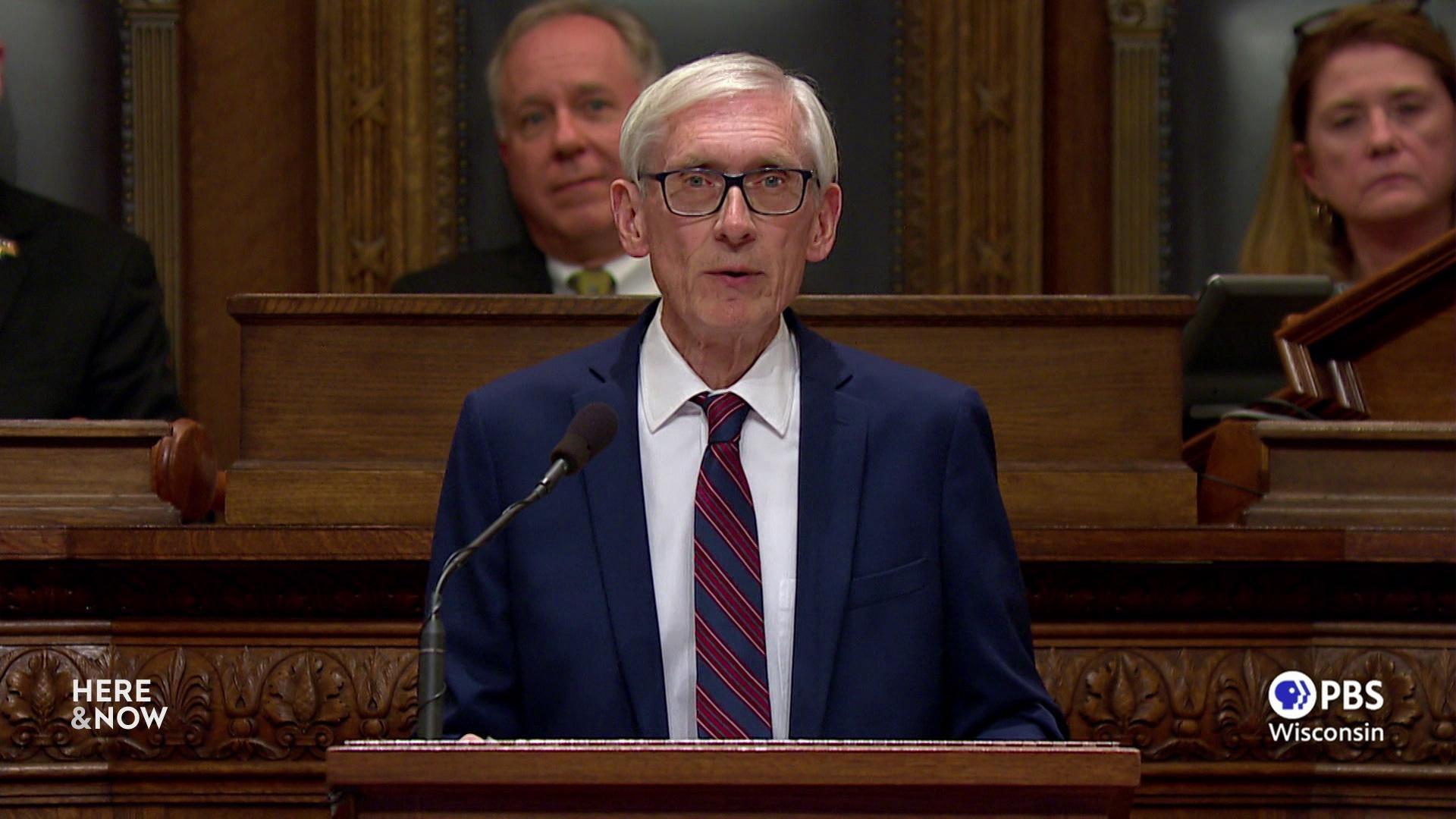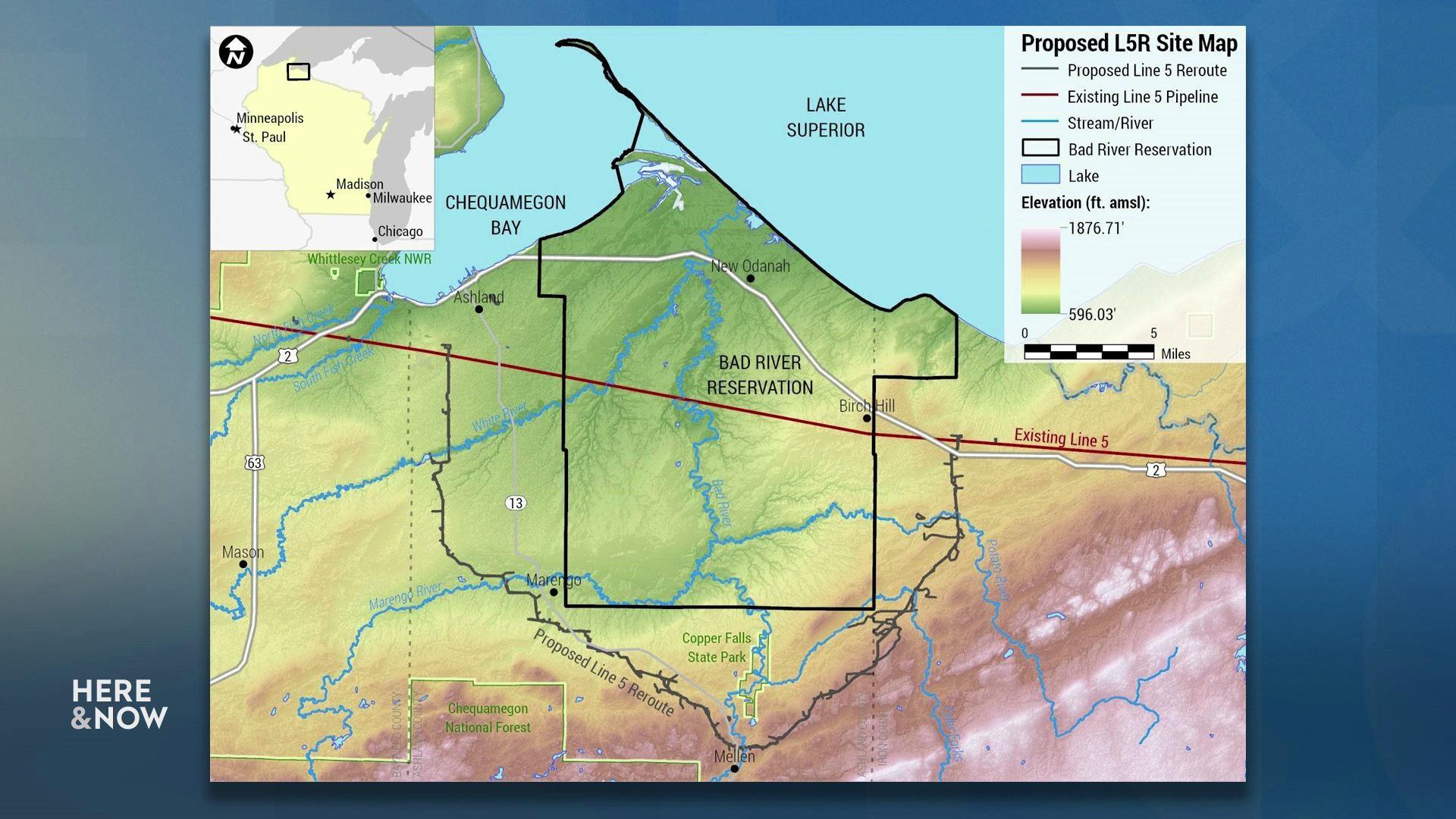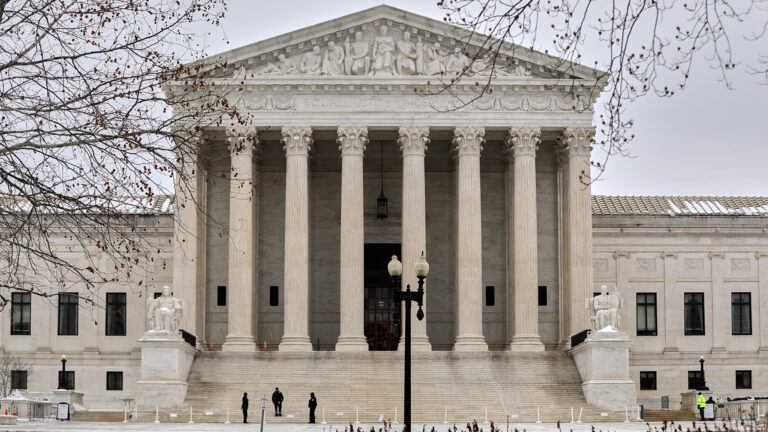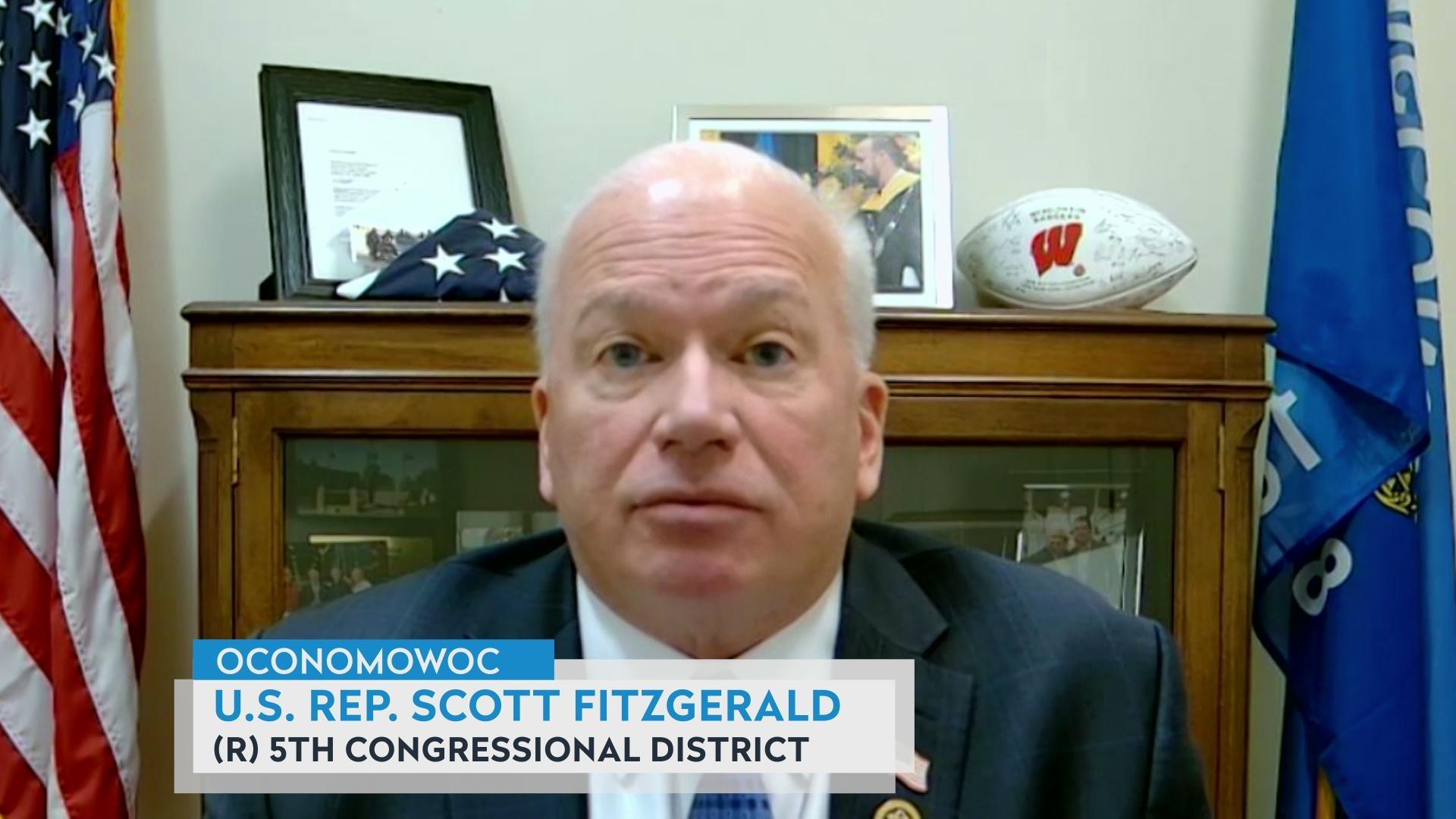What happens when state government wants pandemic unemployment aid back?
Here & Now extra: A "complicated, procedural mess" awaited anyone applying for pandemic unemployment insurance in Wisconsin, and one mistake in filing paperwork could mean the government demanded this money be paid back.
By Nathan Denzin | Here & Now
July 26, 2022

Seeking unemployment insurance during the pandemic, Kathann Jackson faced two administrative gauntlets: first, applying for the aid, and subsequently when the state government decided it had overpayed her and sought this money to be returned. (Credit: Nathan Denzin / PBS Wisconsin)
When Kathann Jackson lost her jobs delivering for GrubHub and UberEats at the onset of the COVID-19 pandemic in March 2020, she didn’t expect filing for unemployment to be difficult.
However, receiving this assistance turned out to be one of the worst financial struggles she had ever been through.
Jackson had never filed for unemployment insurance before the pandemic — but she has received Social Security Disability Insurance (SSDI) for years. She made her first claim to the Wisconsin Department of Workforce Development (DWD) for pandemic unemployment assistance in May 2020. However, that request was immediately denied, because state residents receiving SSDI were ineligible for pandemic assistance or other unemployment benefits. That law was changed in July 2020, and the state encouraged those recipients to reapply.
Jackson then applied for regular unemployment insurance in June and July of 2020, and also saw that application denied.
However, because of an overwhelming amount of paperwork and its dense language, Jackson wasn’t sure if the state’s decision was correct.
To get clarification on her eligibility, Jackson appealed the decision and presented paperwork describing her SSDI benefits to an attorney who works as an administrative law judge in Madison. In her hearing, Jackson told the judge she was unsure what disability insurance she received.
Despite documentation presented in the hearing showing Jackson was not eligible for regular unemployment benefits, the judge ruled she was eligible. The benefits she had applied for were subsequently paid in November 2020.
“Because I had been applying for so long, I got a large amount in a lump sum,” Jackson said. “It was a nice amount, and it kind of spooked me. I didn’t want to end up owing any money back.”
Her fears proved to be well founded when, in September 2021, DWD reversed the decision on the basis that SSDI recipients were not eligible for additional unemployment benefits when Jackson filed.
The bill for overpayments totaled nearly $9,000.
“I’m like, what the hell. As much as I contacted these offices, you should know me by now,” Jackson said. “Their attitude should have been, ‘Oh, I’m so tired this Kathann Jackson keeps calling, she just stays on your tail!'”
Wisconsinites of color less likely to receive assistance
Kathann Jackson had an extraordinarily difficult time filing and receiving pandemic unemployment assistance and other unemployment benefits, but a June 2022 report by the United States Government Accountability Office — which provides nonpartisan oversight to Congress — found she was not alone.
The report found Wisconsin was among the slowest states to begin paying federal pandemic unemployment relief. It also found that white recipients received twice the rate of compensation compared to Black claimants. Native American and Hispanic applicants were also significantly less likely than white claimants to receive help.
“During the height of the pandemic DWD was faced with approximately 7 million incoming calls per month,” Jennifer Sereno, the agency’s communications director, stated in an email to PBS Wisconsin. “Decades of underinvestment in IT and a legacy mainframe system dating to the 1970’s contributed to the problems.”
At the Latino Academy of Workforce Development in Madison, Executive Director Baltazar De Anda Santana said that while most people his organization helped during the pandemic ended up receiving unemployment aid, the process was extremely labor intensive.
“What I heard from my staff was that the whole process is just so overwhelming,” Santana said. “It was very, very difficult for my staff — who are fully bilingual, and knowledgeable about Wisconsin’s systems — to even be able to help.”

Kathann Jackson sits with her granddaughter in an apartment common area on July 15, 2022. Jackson sought and received pandemic unemployment assistance from the state, but was subsequently asked to pay back a significant amount. (Credit: Nathan Denzin / PBS Wisconsin)
Wisconsin’s unemployment system requires an initial claim — including simple information like an email address, and more complicated information including an applicant’s past 18 months of work history.
After an initial application has been approved, claimants must submit a weekly request for benefits. The weekly claim indicates, among other things, that a recipient is still able to work and is searching for work. The entire process is detailed in a 17-page “Handbook for Claimants.”
Santana said because of the system’s complexity, filing a claim can be difficult to fit into people’s day-to-day lives. He said that someone who has the privilege to prioritize claims will likely make their way through the process, but that for many that time does not exist.
“Nobody’s life is lived in a straight line, you have to navigate through a lot of little things,” he explained. “You may just have two hours to do something on the computer, but then you have to take care of life.”
He said that even a 10-question form he has students at the Latino Academy of Workforce Development fill out can be too difficult or time consuming.
“If our community doesn’t have time to fill out a short questionnaire, think of the registration form and all documentation required to receive unemployment benefits,” Santana said.
To help ease the strain on non-native English speakers, DWD has undertaken a translation project to communicate its systems in Spanish. However, that project is not expected to be complete until later in 2022, according to Sereno.
Additional efforts to update the unemployment insurance systems have been ongoing since September, after the pandemic shined a spotlight on the outdated process. Governor Tony Evers announced up to $80 million in funding to update the system in September 2021.
Fight in the courts
Shortly after receiving the enormous bill from DWD, Jackson found Victor Forberger, a Madison-based attorney who specializes in labor, employment and unemployment law.
Kathann Jackson presented the same documents to Forgerber that she had provided to the administrative law judge, which she thought proved her eligibility for unemployment assistance. However, what Forberger saw instead was proof Jackson was not eligible for the type of unemployment insurance she had received.
Instead of denying Jackson’s claim, Forberger concluded, the judge had either ignored or misinterpreted the paperwork, and approved additional benefits.
“This kind of complicated procedural mess is the norm — the Department mandates that claimants be perfect and do everything correctly — but ignores its own errors and confusing guidance and advice,” Forberger stated in an email to PBS Wisconsin. “Basic communication is simply missing for most claimants.”
Forberger sent a slew of appeals on behalf of Jackson to the courts, and after months was able to get the overpayment bill waived due to DWD’s error in paying the benefit in the first place.
Once overpayment for regular unemployment insurance was waived, Forberger and Jackson worked to secure the pandemic unemployment assistance Jackson had applied for, and was eligible for under the July 2020 law.
Finally, in May 2022, two full years after submitting her initial pandemic unemployment assistance claim, Jackson received those benefits she had applied for in May 2020.
“Victor was a miracle, he was the best thing that could have happened to me in that situation because he caught everything,” Jackson said.
Forberger says this isn’t the first time he’s seen someone caught in DWD’s “bureaucratic mess,” and it won’t be the last. He discussed these issues in a May 6, 2022 interview with “Here & Now.”
Forberger is one of the very few unemployment attorney’s in Wisconsin, and his schedule is packed with claimants who have been billed for overpayment.
“People are just really confused, they have no idea what’s going on [with the unemployment system],” Forberger said in another interview in June. “This is happening to thousands of people right now, everyone who calls me thinks their problem is unique, and it’s not.”
State-assessed overpayments are up more than 575% over the last two years, from about $4.7 million in evaluated fraud during 2019, to $27.1 million during 2021 according to DWD reports.
Additionally, due to changes made to Wisconsin unemployment law in 2017, those cases can also include felony or misdemeanor charges for defrauding the government.
DWD communications director Jennifer Sereno said the state has waived $350,000 in overpayments since the pandemic began, but it is still demanding that $1,400,000 in assistance be repaid.
“If this happened to anybody else, I’d tell them: Don’t give up, know your rights,” Jackson said about persevering in her efforts. “Get help and find information that will help you fight back. Don’t fall back, fight back.”
Editor’s note: This article is corrected to clarify Kathann Jackson’s proceedings before the administrative law judge and how Victor Forberger assessed her eligibility for different types of unemployment aid.
 Passport
Passport











Follow Us